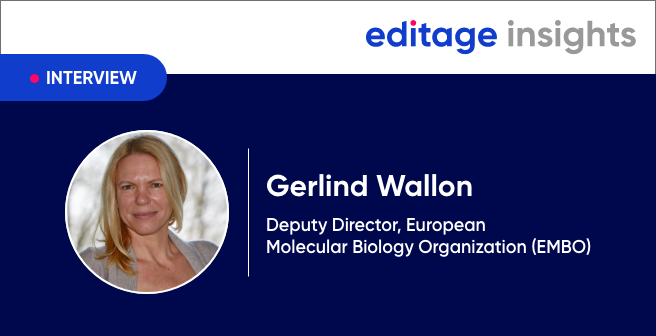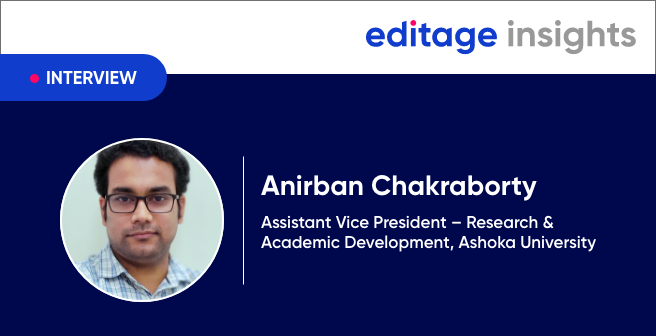Writing and publication tips from a senior editor

Dr. Barry Wright has had a rich and diverse career chart with over 22 published articles to his credit. After attaining a PhD in a combination of environmental and health microbiology, Barry went on to take up a postdoctoral position at the Statens Seruminstitut, Copenhagen. After completing his postdoctoral assignment, he worked for a paper chemical company and then entered the world of pharmaceuticals, where he eventually led a team of researchers who tested new anti-infective molecules in vivo.
How did you decide to enter the field of academic publishing/scientific communication?
Throughout my career, I have always had a fondness for writing and editing the scientific works of others, having edited scientific, regulatory, and sales documents. With the downturn in the pharmaceutical industry, I decided to pursue a career in scientific communications and was hired as a contractor by Editage/CACTUS. I have many friends in Japan, China, India, Korea, and Western Europe. These friendships help me have a better understanding of some of the authors with whom I work and their use of English.
At Editage, you work on advanced editing as well as premium assignments (which involve an in-depth review of a manuscript). How has this experience influenced your approach toward writing, editing, and publishing a manuscript?
My experience in editing documents for Editage has exposed me to a broad range of therapeutic areas and research as well as innovative advances.
My scientific training has been tested as I look for ways to improve manuscripts. In some ways, my lack of knowledge of a particular area has been useful as I can see things that authors, intimately associated with a subject, may overlook while writing for a more generalist audience. Unfortunately for authors writing in areas related to my areas of expertise, I can ask a number of detailed questions (that I have also seen come back as questions from the referees of the targeted journal). Thus, in every article, I attempt to make as many suggestions as my knowledge base allows, to help authors improve their manuscripts and chances for publication.
You are a published author, have served as scientist, and led teams of scientists through their research. Based on your own experience, how do you define a good/well-structured manuscript?
Having served in a variety of roles from a bench scientist to a leader of scientific teams, always working with an eye towards eventual publication, I look for articles that clearly define a problem and provide a logical set of experiments that lead to the conclusions that the authors are making. Most often, this involves a series of experiments that follow in a logical sequence, with each concept building upon previous ones. Even without an in-depth knowledge of a particular area, this thought/experimental process is usually clear, if it has been
followed. If it is not evident in the manuscript, I tend to ask questions that help the authors fill in some of the apparent gaps.
As an author, how did you go about selecting journals for the papers you published? What journal selection tips would you usually provide other researchers?
The journal selection process is, in my opinion, quite simple. As an academic author, you always want to aim for a journal that is the most prestigious in your field (highest impact factor) for the quality/depth of your study. As a clinical or industrial author, you want to aim your paper to the journal that is most likely to be read by the clinicians that you are trying to instruct. For the former audience, a title that is descriptive of the contents of your paper is key to getting your paper read. For the latter audience, you most often want to have a catchy title that makes the clinician want to read your experience on a subject that has also perplexed him/her. That being said, I don’t tend to edit titles too much outside of what the author has suggested; I assume that the author is a much better judge of the type of reader that he/she is directing the paper towards.
As an academic editor, what how do you define a good English paper? What, according to you are the most common writing mistakes authors tend to make? How can these mistakes be avoided?
I am always impressed by the quality of English that many authors use. This is especially true since English is not always the simplest or most straightforward language. Oftentimes, there are nuances to the language that are simply not apparent to non-native speakers. When an author demonstrates mastery of these nuances, I am always in awe.
Some common writing errors that I have encountered include sentences that are too short and choppy and make the reading difficult. At the other extreme, some authors also tend to cram too many ideas into a sentence by adding more commas. This tends to destroy the clarity of the author’s message. My best advice for authors is, think about the message that you are trying to convey and try to explain it to your son or daughter. Take bite-size bits of information and convey each bit in a sentence before moving on to the next bit. From the editor’s point of view, I find it much easier to help an author who writes with short, choppy sentences where the message is clear.
Would you like to share any memorable experience you’ve had with an Editage client?
There have been 2 memorable authors with whom I have worked. The first was an author who wrote a short editorial article. He had a multitude of questions on his editorial. The English was extremely good, but he was looking to convey a particular point and to do it with a touch of humor. He asked questions and explained what he was trying to do and, together, I think that we met his desired goal. The camaraderie that we
developed through written questions was most pleasant. This was an example that came closest to what I feel is the ideal for editing: near real-time Q&A to make sure that both the author and the editor clearly understand one another.
The second experience was with an author writing a dental surgery paper. What a fascinating technique! The paper I was editing was truly a world-class paper. The author was kind enough to share with me the videos that were being sent with the paper so that I could glean as much as possible from the full paper. It was a true honor to participate in readying such a paper for publication. In my mind, the paper described a method that made the medical facilities aboard the Starship Enterprise look quaint!
You clearly have a busy life. How do you spend your time when you’re not playing the role of a scientist or helping authors get published?
In my “free” time, I work with young men, helping them to develop leadership skills and have fun in an environment that has high expectations of moral behavior and high expectations of effort and learning. It is gratifying to have a small role in the development of these future leaders. They may only end up being leaders in their own homes/communities, but they will make a difference in the lives of those around them. I also get the chance to spend considerable time with my family–simply the most important aspect of life!
A few words for our clients…
To our clients, I guess that my primary comments would be: Please forgive me if I am somewhat harsh in my critique of your English (you always know that your English is probably infinitely better than my command of your language!) and my questions regarding your science/experiment. My only intent is to provide you with the most thoughtful consideration of your paper so that you have the best chance of success in publication.



